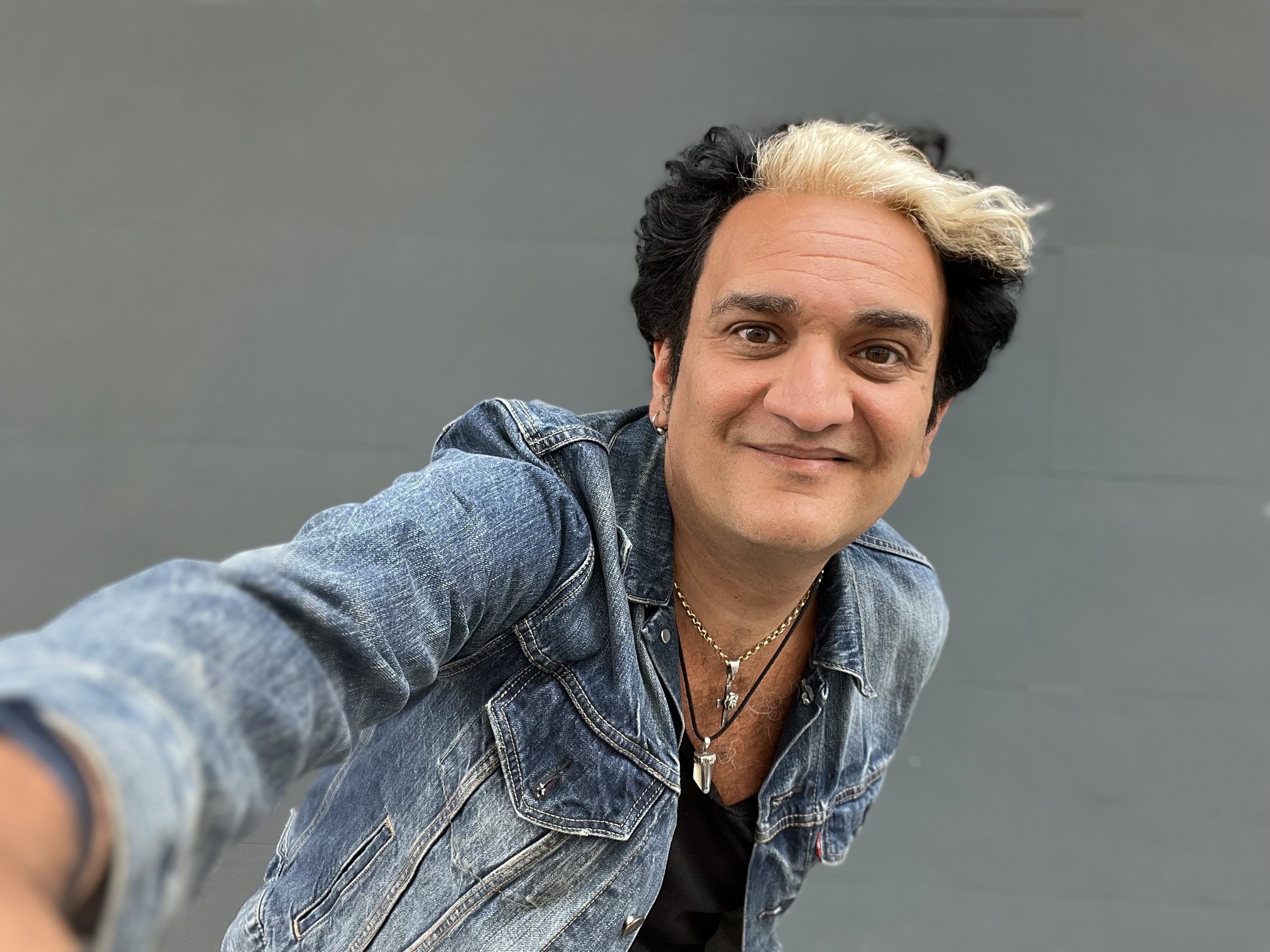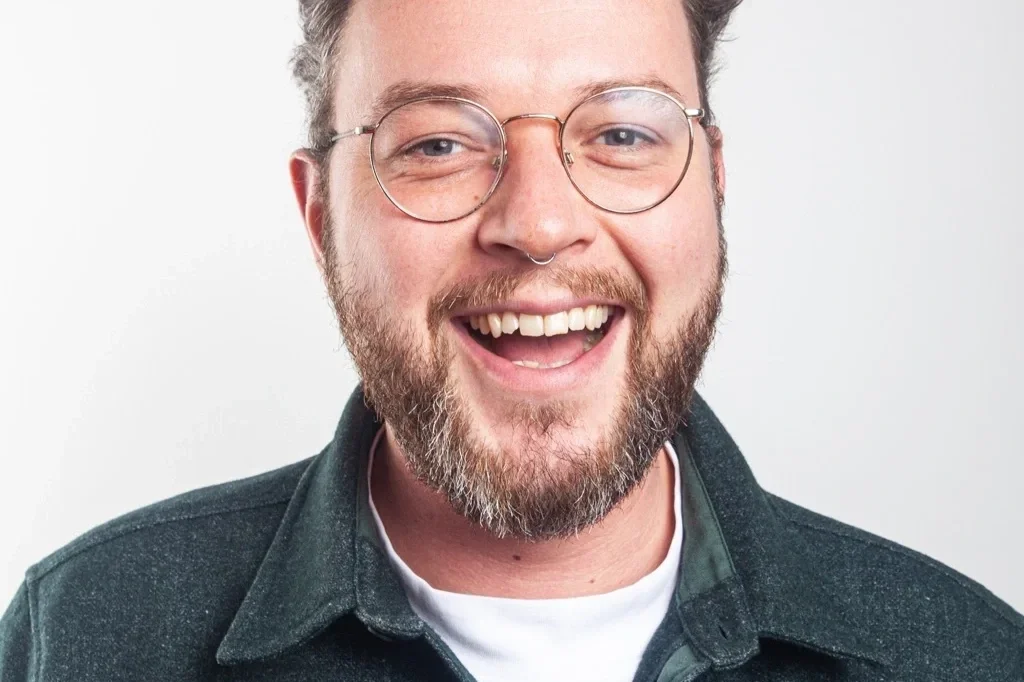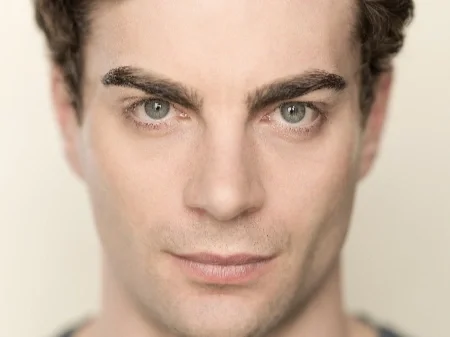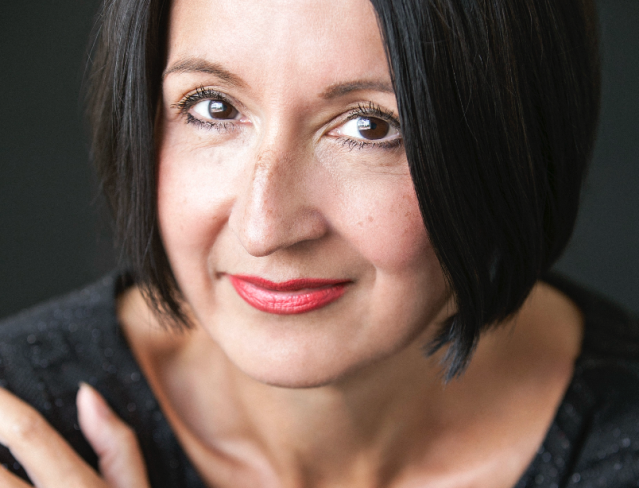Interview with British singer-songwriter and performance artist, Tim Arnold
British singer-songwriter and performance artist Tim Arnold begins a unique run of tour dates for his nationally acclaimed new album and film Super Connected. The Black Mirror-style fusion of live music and film has been developed and directed by director Kate Alderton into a stage adaptation of the album’s story: the existential ticking time bomb of social media and big tech. Today Tim chats with Emmie from Theatre and Tonic as part of our neurodiversity series!
You are identified as a singer songwriter, film-marker, composer and social activist, but you also have autism. How would you describe your autism to people?
I don’t really think of it separately, I just think of it as me. I’m still learning to identify my autism since I was only diagnosed in 2022. In the past I have masked myself in front of most people, only feeling comfortable enough to be the real me with a small group of close friends. I can’t do a lot of day-to-day things easily, but it’s hard for other people to see that.
Finding out that I’m autistic helped me understand lifelong challenges, as well as gave me real insight into the way I create. Why I make what I make, and how.
Being autistic must come with its challenges, what are your biggest everyday challenges?
I need a lot of time on my own to function really well. But I also love to be around people. Everyday challenges are mostly around communication particularly asynchronous communication, when I find it close to impossible to read between the lines of emails, text messages or any social media which I have long been in the process of battling with.
Also, small talk. Unless there’s a creative or constructive point around communication, I don’t really see the point!
How has being autistic benefited your career, creatively and professionally do you think?
Creatively, it’s given me the kind of laser focus and total dedication to my work that has kept me making an album every year since I was 20. 26 and counting! Being able to wear many different hats is a superpower of my autism. It’s also a huge part of me being a multi-disciplinary artist. Having the ability to focus in multiple directions is incredibly helpful as an independent artist. I’m lucky enough to have built a life with enough time and space to do that.
Professionally, it’s been much more challenging because my motivation and focus are always 100% artistic. My goals have never been aligned with market ambitions, make a profit or ‘grow’ my business.
Is there a stereotype about being autistic which really grinds on your gears?
That being autistic means lacking empathy. Although communication, and ‘reading in between the lines’ in conversation can sometimes be more challenging, I think the autistic community can often have a huge capacity for compassion and empathy. If anything, we may often feel more: for animals, for the planet, for injustice in the world. A lot of my work has sprung from that place. One to one, I can sometimes find it difficult to empathise, but with large groups of people, especially those who might be suffering, I often experience huge amounts of empathy.
There are definitely more people in the industry who identify themselves as being neurodivergent, is the industry itself well placed to support people like you?
I think it’s becoming more and more so as the conversation around being neurodivergent has finally reached the mainstream. People are much more open to me if I describe what my challenges are, and what works in terms of managing them.
My latest project Super Connected received funding from the Arts Council. This wouldn’t have been possible without their dedication to offering access support. It helped remove the barriers I face with forms and applications, and that support has changed my career.
I’m a mentor at Waterbear College of Music in Brighton and their care around neurodivergent students stepping into the music industry is exemplary. It’s incredibly inspiring and gives me a great sense of hope witnessing students feel completely at ease with communicating what they need in terms of support.
How have things had to be adapted for you when you are in a studio or working?
Now I’ve been diagnosed, I’m much more comfortable asking for the things that support me as I work. Having time completely free from interruptions is essential to my creative process. 90% of my recording time is alone, and I’ve been lucky to meet and work with a very small team of individuals who have supported my approaches to creating over the years.
You’ve released a lot of music, including Super Connected, Maybe Magic and When Staying Alive’s The Latest Craze - how does your autism impact on your creative process?
Making music is part of what keeps me calm and able to function. It helps me self-regulate. Autism doesn’t really impact my creative process, it’s completely enmeshed with it.
My creative collaborators often say how helpful it is to work with someone who is meticulously precise about everything. My precision can rub people up the wrong way in day-to-day life, but in a rehearsal room or a music studio, it’s a valuable tool.
Is there an area of the industry you would like to do more of and haven’t already?
Most of the productions that I perform in, are shows I’ve written and composed myself. I really love the experience of executing a creative idea from inception to completion, but I also enjoy collaborating and writing music for other people’s projects.
Have you seen any other work which has been really inspiring for artists like yourself?
Phelim McDermott’s Tao of Glass, because of the bravery he takes in understanding that it can be more inspiring for an audience when they don’t necessarily understand everything they experienced in a show.
Someone who is reading this may be a neurodivergent person wanting to make a career in the creative industry, what advice would you give them?
To be upfront and honest about anything that used to be considered, unorthodox, unacceptable or different. We are at the start of a new frontier of inclusivity. Even if it’s not taken root in your area, you can be the one to start it off. Also, the same advice I give to anyone neurodivergent or otherwise: never stray from your creative intention, and never wait to ask for permission - creativity wants action!










